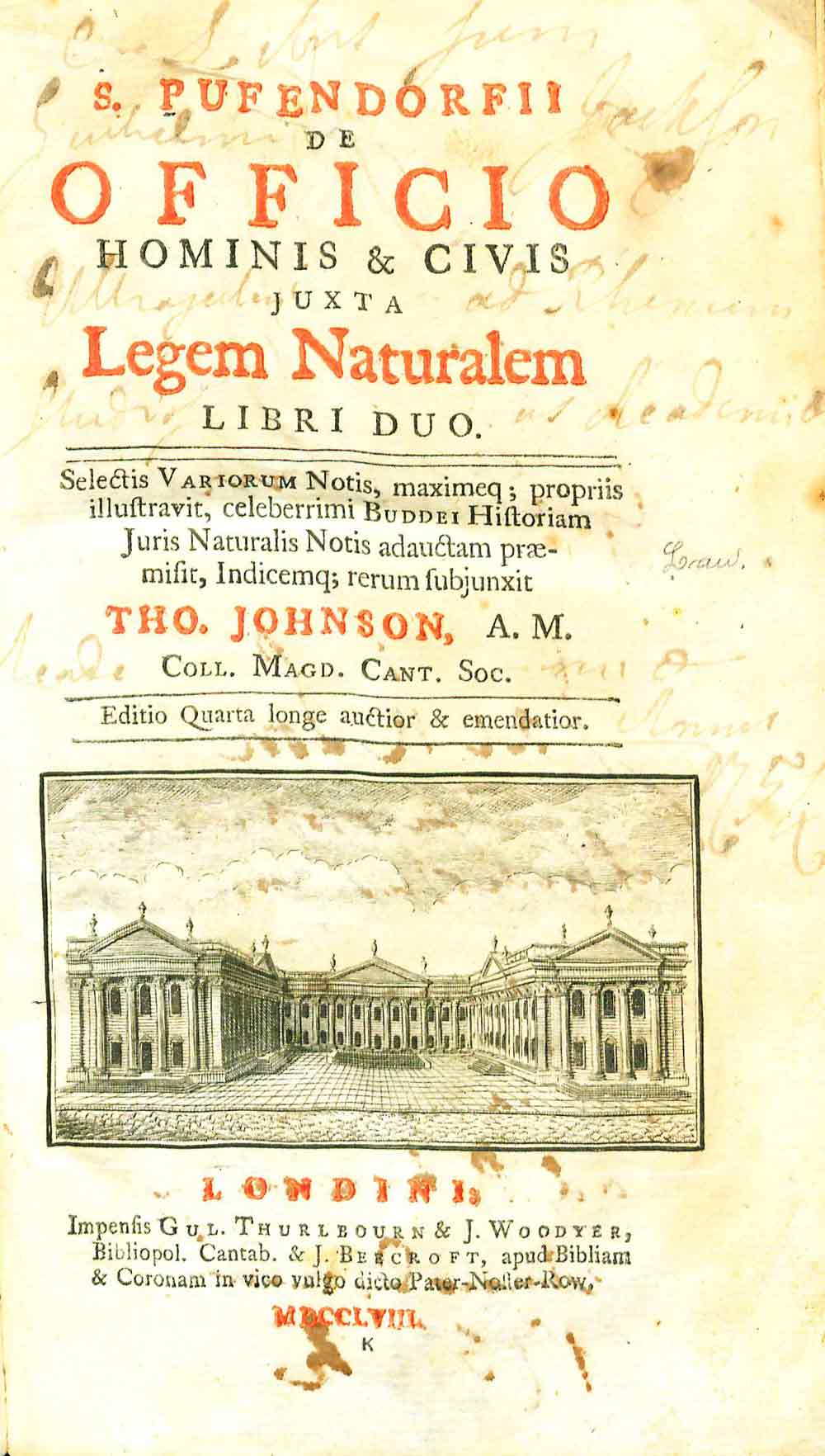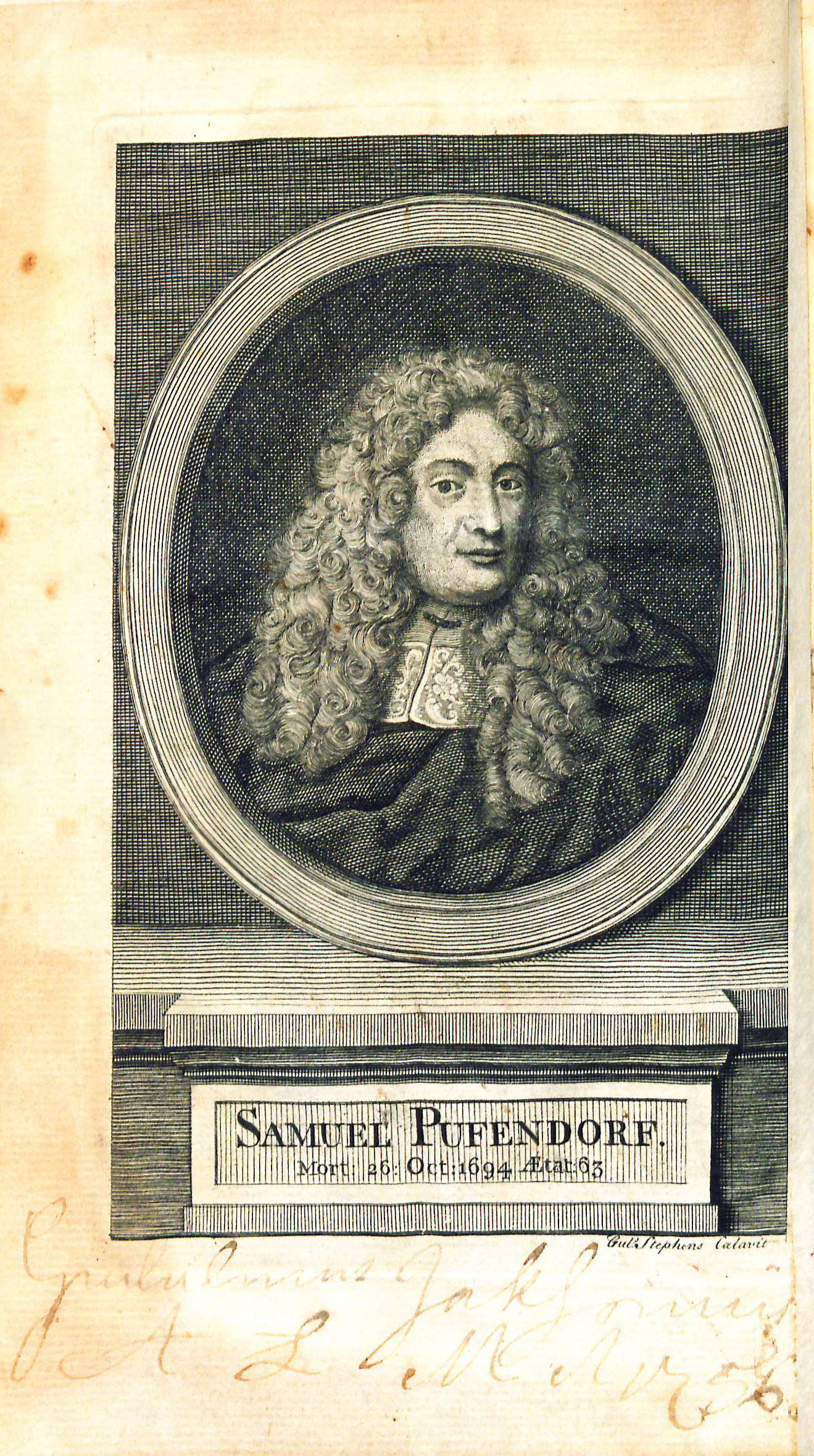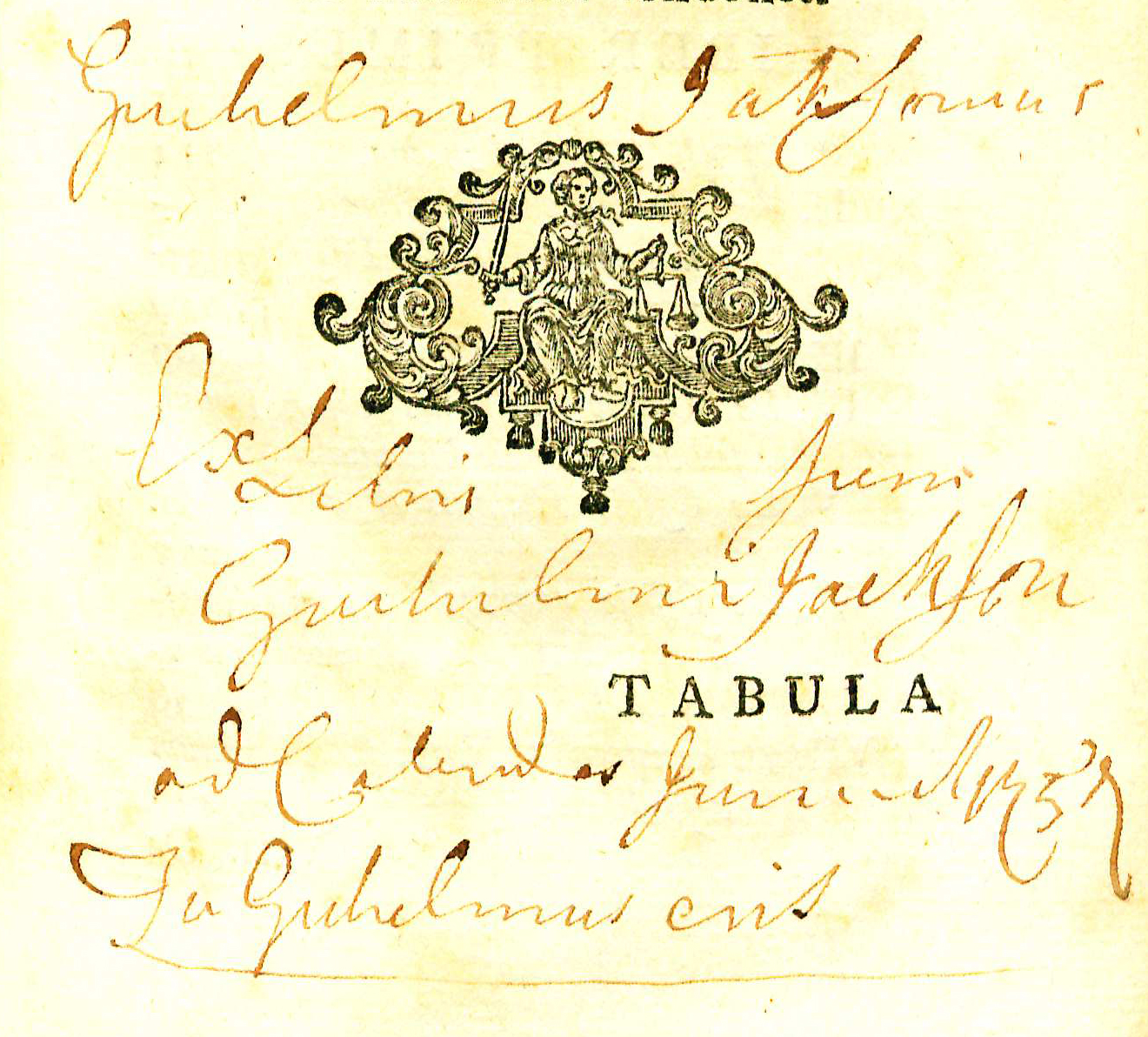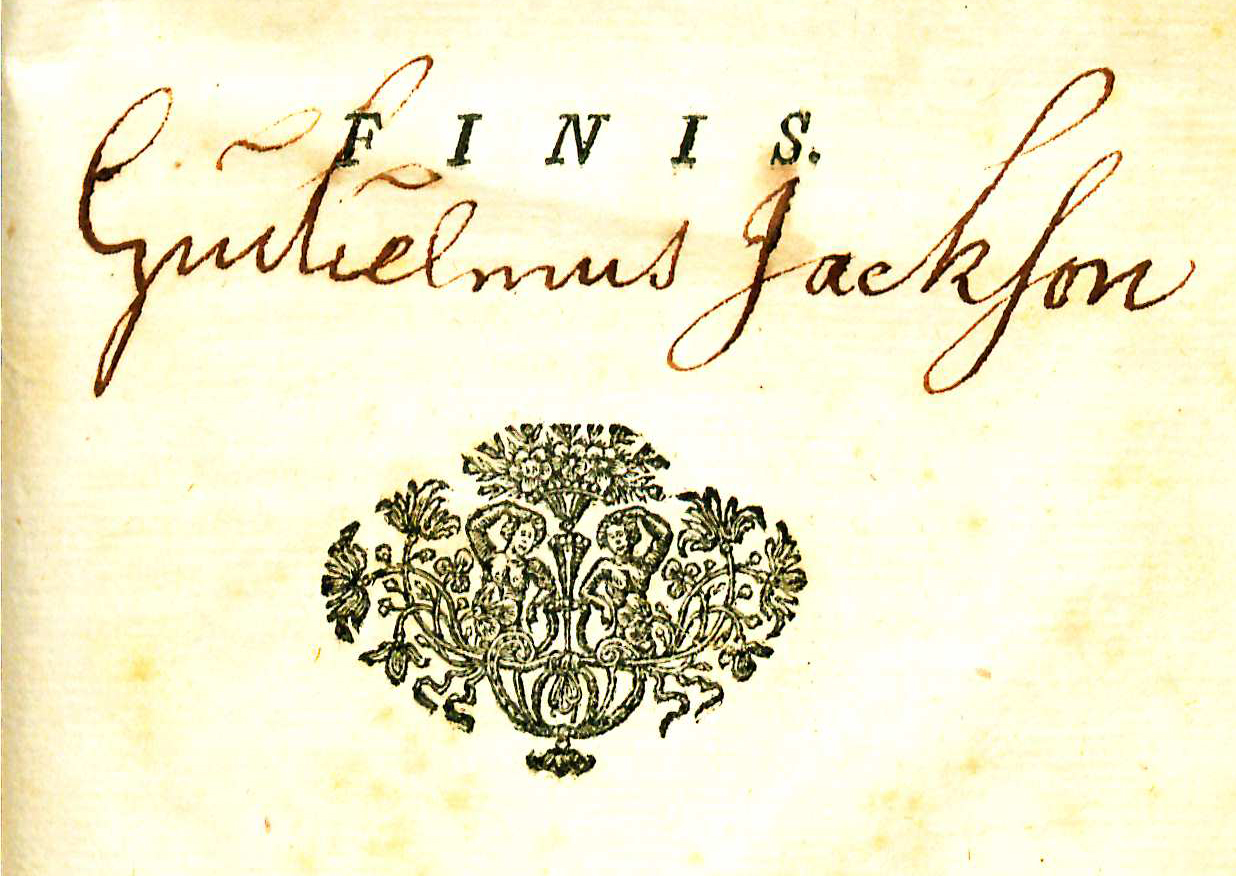De Officio Hominis & Civis Juxta Legem Naturalem
S. Pufendorfii, De Officio Hominis & Civis Juxta Legem Naturalem Libri Duo: Selectis Variorum Notis, Maximeq; Propriis Illustravit... Buddei Historiam Juris Naturalis Notis Adauctam Præmisit, Indicemq
by Samuel Pufendorf
| S. Pufendorfii, De Officio Hominis & Civis Juxta Legem Naturalem Libri Duo | |
|
Title page from S. Pufendorfii, De Officio Hominis & Civis Juxta Legem Naturalem Libri Duo, George Wythe Collection, Wolf Law Library, College of William & Mary. | |
| Author | Samuel Pufendorf |
| Editor | Thomas Johnson |
| Published | Londini: impensis G. Thurlbourn |
| Date | 1758 |
| Language | Latin |
| Pages | 1, xvi, 513 |
| Desc. | 8vo (20 cm.) |
In 1672, Pufendorf published De Jure Naturae et Gentium (On the Law of Nature and of Nations), followed by De Officio Hominis & Civis Juxta Legem Naturalem (On the Duty of Man and Citizen According to Natural Law in 1673. The latter was a condensation of the former, "a landmark work that proposed a thorough system of private, public, and international law based on natural law. Beginning with a consideration of fundamental legal ideas and their various divisions, Pufendorf proceed[ed] to a discussion of the validity of customs, the doctrines of necessity and innate human reason ... Pufendorf argued that peace, not war, was the state of nature, and he proposed that international law was not restricted to Christendom."[7]
Integral to Pufendorf's writing was the concept of a natural state. He deemed it so significant that he "considered political tracts which ignore[d] it 'gravely defective.'"[8] Pufendorf separated the law's injunctions, in accordance with the separations of the natural state, into three categories: (1) those toward God (adversus Deum), (2) those toward ourselves (adversus seipsum), and (3) those toward other humans (adversus alios homines).[9] De Officio Hominis & Civis Juxta Legem Naturalem was published continually, translated into several different languages, and became a staple of university education.[10]
Evidence for Inclusion in Wythe's Library
Listed in the Jefferson Inventory of Wythe's Library as "Puffendorf de officio hominis et civis. Johnson 8vo." and kept by Thomas Jefferson. Jefferson later sold a copy of the 1735 Thomas Johnson edition of S. Puffendorfii de Officio Hominis et Civis juxta Legem Naturalem to the Library of Congress in 1815, but the volume contains no evidence to conclusively verify Wythe's previous ownership.[11] George Wythe's Library[12] on LibraryThing notes "Precise edition unknown. Octavo editions were published at Cambridge in 1735, and at London in 1737, 1748, and 1758." The Brown Bibliography[13] mentions the Library of Congress copy, while acknowledging that Jefferson owned a second Johnson edition of Pufendorf's work that his family sold in 1829. Because we do not know which edition Wythe owned, the Wolf Law Library found an available copy of the 1758 Johnson edition and purchased it.
Description of the Wolf Law Library's copy
Bound in recent period-style quarter calf over marbled boards with raised bands, a lettering piece to the spine, and renewed endpapers. Contains numerous signatures of early owner, William Jackson. Purchased from the Lawbook Exchange, Ltd.
View this book in William & Mary's online catalog.
References
- ↑ Encyclopedia of Ethics, s.v. "Pufendorf, Samuel Freiherr von (1632-1694)", accessed October 10, 2013.
- ↑ Ibid.
- ↑ Michael Seidler, "Pufendorf's Moral and Political Philosophy", The Stanford Encyclopedia of Philosophy (Spring 2013 Edition), Edward N. Zalta (ed.).
- ↑ Seidler, "Pufendorf's Moral and Political Philosophy."
- ↑ Encyclopedia of Ethics, s.v. "Pufendorf, Samuel Freiherr von (1632-1694)."
- ↑ Ibid.
- ↑ British Museum General Catalogue of Printed Books to 1955, compact ed. (New York: Readers Microprint Corporation, 1967), 20:1074.
- ↑ Ibid.
- ↑ Seidler, "Pufendorf's Moral and Political Philosophy."
- ↑ Ibid.
- ↑ E. Millicent Sowerby, Catalogue of the Library of Thomas Jefferson, 2nd ed. (Charlottesville: University Press of Virginia, 1983), 2:11 [no.1253.]
- ↑ LibraryThing, s. v. "Member: George Wythe" accessed on March 4, 2014.
- ↑ Bennie Brown, "The Library of George Wythe of Williamsburg and Richmond," (unpublished manuscript, May, 2012) Microsoft Word file. Earlier edition available at: https://digitalarchive.wm.edu/handle/10288/13433



